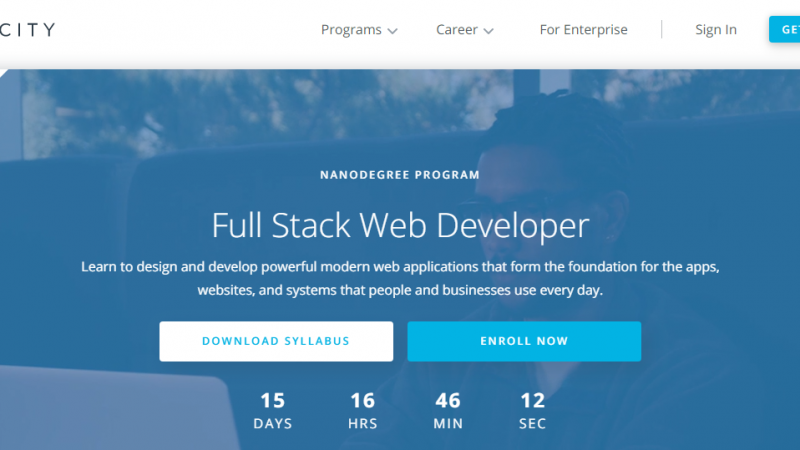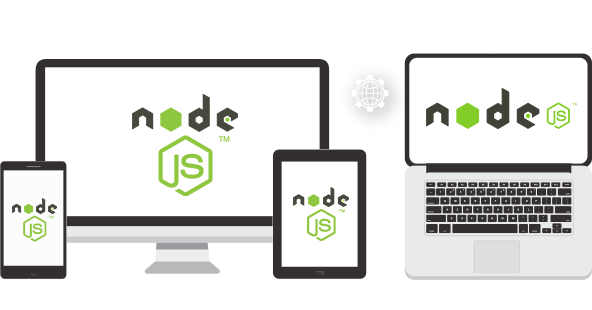How To Become A Genuine Programmer: 10 Tips
There are lots of popular jobs to look for these days, but only a handful of career opportunities are as attractive as programming. After all, we live in the digital universe where almost nothing can be done without programmers and their coding skills.
This is exactly why some of the top positions in the US are reserved for tech-related professionals. But how do you become a skilled programmer? Is it really worth your time?
In this post, we will discuss the benefits of the position and show you 10 tips on how to become a genuine computer programmer. Let’s take a look!
Key Reasons to Become a Programmer
Before you start thinking about the ways to become a programmer, you should make sure that it’s really something you want to do. In other words, you should understand the main advantages of being a coding expert.
By definition, a programmer is an individual that writes/creates computer software or applications by giving the computer specific programming instructions. It can mean a lot of things, so the jobs in this field can be highly diverse and multifaceted.
Jake Gardner, a tech analyst at the best essay writing service, helped us to make a list of the most important reasons to become a programmer, so let’s check it out:
- Salary: According to the Bureau of Labor Statistics, the average programmer earns nearly $85 thousand per year.
- High demand: The market is always in need of new coding experts.
- Professional versatility: You can work with many different programs and apps based on personal preferences.
- No college degree required: Computer programming is a relatively new niche and the vast majority of employers don’t consider it necessary to have a college degree.
- Flexibility: You can work remotely, choose clients, and do many other things independently.
10 Ways to Build a Successful Career in Programming
You’ve seen the introduction, but now it’s time to analyze the most practical ways to build a successful career in programming. Here are our top 10 recommendations:
- Focus on one programming language at a time
The first thing you need to know is that professional programmers are focused on one or two programming languages max. You don’t want to become Jack of all trades, master of none. On the contrary, the goal is to choose a programming language wisely and concentrate on it 100%.
If you are wondering why is it so important, the answer is simple – nobody needs the average programmer with the average skill set. Clients are looking for the most proficient professionals instead, so you better choose the right niche and stick to it long-term.
You can choose between lots of options out there, but it’s up to you to determine which programming language suits your interests the most.
- Take online courses
We already mentioned that many programmers don’t need a college degree, but they must have at least some sort of formal education and training to prove professional credibility. The solution usually comes in the form of online courses.
Once again, there are a plethora of digital learning resources you can check out online, but we recommend you to explore two websites:
- Udemy: Udemy is one of the largest databases of online courses. When you search for the keyword “programming,” Udemy displays more than 10 thousand items. Use the platform’s filters to identify the most suitable programming course.
- Coursera: Although not as comprehensive as Udemy, Coursera also offers you a broad scope of high-quality programming courses (over 800).
- Pay attention to industry magazines and other learning resources
You can learn a lot of things simply by reading popular industry magazines or watching YouTube videos dedicated to programming. The Internet is flooded with amazing learning resources, so take some time to find and follow the best ones.
Of course, there are hundreds of influential books about programming that you could read. Some of our favorite picks include:
- Code Complete by Steve McConnell
- Clean Code by Robert C. Martin
- Working Effectively With Legacy Code by Michael Feathers
- The Pragmatic Programmer: From Journeyman to Master by Andrew Hunt and David Thomas
- Find a mentor
You can use all sorts of learning materials while trying to become a genuine programmer, but finding a mentor is often the simplest solution. How come?
First of all, a more experienced colleague knows exactly what to do in every situation. He/she will immediately move to the practical tricks and avoid wasting time on irrelevant tips. Secondly, you can interact with the mentor and ask questions whenever necessary. Doing so, you will enjoy the privilege of two-way communication while studying.
- Start working as soon as possible
You can learn all the theory you want, but it won’t make a difference if you don’t start working as soon as possible. The goal is to put ideas into practice and complete a few programming projects while learning.
It’s a critical segment of your professional trajectory because programming is all about real-life work and practice. Even if you cannot find a full-time job at first, we encourage you to join a programming team either through volunteering or internships. As you keep learning and growing your skills, rest assured it will be easier to find new job opportunities as well.
- Practice coding on your own
You’ve probably noticed that programming requires a lot of work, but that’s the price you have to pay if you want to earn a six-figure salary. This is why we also recommend you to practice coding on your own even if you don’t have any concrete projects to work on.
Coding apps are always an elegant solution. For instance, Udacity is built with the purpose to help programmers of all sorts to master the art of coding. There are dozens of programming languages to check out here, including the most popular options such as JavaScript, CSS, HTML, and so on.
- Create a portfolio of professional projects
A well-designed resume will only take you so far in the attempt to find great clients. But if you want to kickstart a programming career, you will have to create a portfolio of professional projects because it’s the only way to convince employers that you a talented job candidate.
If you are only a beginner-level programmer, make sure to add even the smallest projects to the portfolio. On the other side, experienced coding professionals can filter through their projects based on job requirements and showcase the most relevant works only.
In each case, you need to build the portfolio and stay ready to present former projects to the recruiters.
- Take care of digital profiles
Do you know that over 90% of HR managers use social media for recruiting? They can learn a lot about job candidates that way, so you better take care of your digital profiles on time.
Start with LinkedIn because it’s a platform that gathers business professionals from all over the world. Keep the account fresh and up to date, making sure to add the latest job experiences as well. You should also remove controversial or inappropriate details from other social media profiles.
Besides that, it would be perfect to design a personal website to present yourself to the programming world. It doesn’t have to be too complex, but you can use it to prove professional agility and distinguish yourself from other programmers in your niche.
- Develop communication skills
Most programmers think they don’t need any soft skills in particular because they work remotely and independently. Rest assured it’s a wrong kind of attitude because you will often have to explain the details of your work and present it to the client. Therefore, don’t hesitate to practice and hone your communication skills because it will help you to reach out to potential recruiters and prove your capabilities more convincingly.
- Keep learning
As a programmer, you should know that the entire coding industry is changing day after day. What used to be a popular tool only a few years ago is now obsolete, which forces developers to keep learning continuously.
This is the only way to grow your career steadily and stay on top of the industry trends. But if you fail to do so, you will probably have to face younger, stronger, and more diligent competitors very soon.
Conclusion
Computer programming is not only a popular profession but also a highly lucrative career opportunity. In this article, we discussed the top ten tips on how to become a genuine programmer.
Have you ever thought about any of these career development tactics? Do you have other interesting experiences to share with your peers? Make sure to write a comment – we would love to hear more about your programming experiences.
AUTHOR BIO
James Murphy is a full-time app developer and a part-time content creator from New York. Although being an IT specialist, James writes about a wide range of other topics such as social media and digital marketing. James is the father of two lovely toddlers and a dedicated supporter of the New York Yankees.

